- Home
- Anne Lamott
Almost Everything Page 3
Almost Everything Read online
Page 3
Our lives bob along on the sea of ordinariness, turmoil, paperwhites about to bloom, matters of state, war about to be waged, although when has it ever, even once, led to the predicted consequences? As we grow older, we know what is always there in the wings, some of it not very good news. Then it’s here, and it may be as awful as we’d imagined, as in the Santa Rosa fires, or just as stunning, as in the response.
How can we celebrate paradox, let alone manage at all, knowing how scary the future may be—that the baby brother will grow, and ignore you or hurt you or break your heart? Or that we may die, after an unattractive decline, or bomb North Korea later today? We remember that because truth is paradox, something beautiful is also going on. So while trusting that and waiting for revelation, we do the next right thing. We tell the truth. We march, make dinner, have rummage sales to raise relief funds. Whoever arranges such things keeps distracting us and shifting things around so we don’t get stuck in hopelessness: we can take one loud, sucking, disengaging step back into hope. We remember mustard seeds, that the littlest things will have great results. We do the smallest, realest, most human things. We water that which is dry.
TWO
Inside Job
There is almost nothing outside you that will help in any kind of lasting way, unless you are waiting for a donor organ. You can’t buy, achieve, or date serenity. Peace of mind is an inside job, unrelated to fame, fortune, or whether your partner loves you. Horribly, what this means is that it is also an inside job for the few people you love most desperately in the world. We cannot arrange lasting safety or happiness for our most beloved people. They have to find their own ways, their own answers.
Not one single person in history has gotten an alcoholic sober. (Maybe you’ll be the first. But—and I say this with love—I doubt it.) If it is someone else’s problem, you probably don’t have the solution.
I hate this. I have my eye on a new rug for my study that would so inspire me to write better, faster, smarter. Also, on some leftover Halloween candy, which I know this one time wouldn’t give me a sugar rush and the inevitable crash. And I have a list of excellent ideas on how almost everyone I know should proceed in order to improve the quality of their lives, which might coincidentally improve the quality of mine, as I could stop worrying about their bad choices and wasted potential.
The desperate drive to own and control in order to fill our psychic holes, relieve anxiety, fix difficulties, and cauterize old wounds takes root at an early age, and is doomed. It is like going to the hardware store for bread. It doesn’t sell bread. I can live on corn nuts and Paydays for only so long. Probably no longer than two weeks.
Maybe retracing our steps to the origin of the problem is helpful. Most emotional wounds are caused by a child’s belief or feedback that he is deficient, defective, or annoying—probably all three. Perhaps the father had tiny warmth issues, and the mother was a bit tense, or vice versa. To make the parents proud, the child needed to do better, add certain qualities, gain or lose some weight, remove any offending traits or tics, and not make other people get inferiority complexes.
Some of us felt like walking tics, too sensitive or rebellious, needy or robotic—damaged like an air conditioner that was dropped in the warehouse, and when the worker points out that it’s broken the boss says: “Just put it in a new box. Ship it out.”
The message to us kids was that we didn’t have intrinsic value but we could earn it, and that we lived in a world of scarcity but just needed new things. We were simultaneously disappointing and better than people in other families. Evil outweighed good, scarcity outweighed care and abundance. So stay on your toes, but why, for Chrissakes, are you such a nervous Nellie?
Two tactics helped. Putting together a reasonably good personality was how we staked a claim on the outside world, although it meant ignoring our inside world. That personality needed to be one that succeeded—so those participation medals were almost as damaging as first-place trophies. You got a pat on the head.
And the other tactic was to achieve enough to hoard better and better stuff that most people couldn’t even afford.
This was life in the hardware store, and just fine if you could live on beef snack sticks and Beer Nuts. Dad was under enough pressure as it was without your looking so pitiful; heavy and distracted lies the head that wears the crown.
The bakery, on the other hand, was a family’s understanding that a kid didn’t have to do or achieve or own anything more for the world to care, and even delight in her. One met families like this from time to time (not very many—maybe one a year). How did the rest of us ever locate a spiritual bakery where we could actually find the bread of life, let alone the ginger cookies of hope? The answer is, over the years, little by little, mosaic chip by mosaic chip.
I heard something a few years ago that would have completely changed my life had I learned it as a child. It was at my church, where I was teaching my Sunday school class of two teenage boys, both with rough skin, one slightly younger boy, and a little girl with elaborate and charming buckteeth, too young for braces. That day I was teaching my one good message, that we are loved and chosen as is, fearfully and wonderfully made, with love and awe, perfect and fragile. We are lovely as sparrows, and all sparrows are sweet. No one thinks, “That sparrow is kind of a loser, and boy, is that one letting herself go.”
I know that all teenagers believe they are intrinsically defective, so that was why I brought up sparrows and friends. I asked the class if any of their best friends had acne, glasses, or problems at home, and if that made them love the friends less. Of course not. I asked them to say, “I have value,” and both teenagers did so with mortification. The younger boy, not yet destroyed by hormones and society, said it as calmly as if announcing he had ears.
I turned to the little girl, expectantly. She said, “I has value!”
I asked her to say it again, “I has value.”
I has value. I want to get that tattooed on my forearm.
Besides extreme achievement, basic jungle-survival growing up meant agreeing not to see what was going on in the family but also agreeing to feel responsible for the parents’ unhappiness. Maybe there were tiny, tiny flaws and tensions in the marriage, such as that the parents hated each other, or that the father was a sociopath. Love did not look like family unity, it looked like a business arrangement between mom, dad, and the serfs. It looked like kids trying to fix unhappy parents by being successful, having good manners, and making handmade cards—#1 Mom! Underachievement and precociousness both sped up the feeling of separation. If you were going to get ahead, you needed a strategy, a charming persona. Imagination and heartfulness were distracting.
Who knows, maybe this all begins prenatally. Looking back on it, I’m not convinced that my parents’ smoking and drinking and bad marriage produced an ideal environment for a possibly already tense fetus. By kindergarten, I knew I had more value when I cheered up my parents, did well in school, and finished my chores. In the 1950s, little girls baked and learned to dust furniture, and this pleased everyone—briefly. When I was needy, shy, worried, deeply sensitive, too skinny or, later, overweight—in other words, most me—not so much.
As you grew, you collected possessions, the psychic kind you needed to survive: the armor to ward off emotional battery; the snippets of good advice (“Never let them see you cry”) you picked up as you grew. You needed to guard these possessions, and what better safe-deposit box than your body? Plenty of room next to the family secrets and all the scary feelings you swallowed.
Finally, in high school or college, you met someone who knew something deeper, true and ineffable. They gave you poems and wine. That was the medicine, the food, the knowledge of essence—yours and the world’s—and belonging. When we discovered who we truly are, through love or a teacher, new life began. We discovered, now and then, our inclusion in the huge, beautiful, weird world, in new friends, communities, the most
ordinary elements: we break the bread, bless the cup, and share.
Even so, after finding those friends and those poems, and maybe even coming to believe that the world is tilted to the good, our default response still is the child’s drive to be more accomplished, to be attractive and self-sufficient, with a better class of friends.
Forty-four years after I dropped out of college, despite decades of extraordinary friends, spirituality, and (some) mental healing that I’ve managed to accumulate along the way, my first response to hearing the number of people killed so far in the Syrian genocide was to do the single most bourgeois thing my unconscious mind could come up with: drive to Nordstrom for a $200 pair of jeans that I’d coveted. Two hundred dollars, and I didn’t even look that cute in them.
When my perfect dog Sadie died fifteen years ago, I bought the first new car of my life a week later, a soft minty-green VW bug. God told me to, and it helped for a few days. When a large newspaper’s book critic panned my previous book, saying it seemed to have been written by someone who was spending too much time with the Kardashians, I felt humiliated. The paper has 500,000 readers. How to deal with this? A Cinnabon is a thing of perfection, and the extra frosting costs only 71 cents.
A child said to me, “I has value,” but the grown-ups mostly keep that thought to themselves, and I keep forgetting that I do.
Could you say this about yourself right now, that you have immense and intrinsic value, at your current weight and income level, while waiting to hear if you got the job or didn’t, or sold your book or didn’t?
This idea that I had all the value I’d ever need was concealed from me my whole life. I want a refund. In this world of suffering and grace, of brokenness and sky, of bad skin and buckteeth and one another, I cannot add to the value of myself. It’s not out there.
This poses the question: If it’s not out there for sale or to achieve, then where is it?
It’s everywhere, within and without, around and above, in the most ordinary and trivial, in bread and roses, a glass of water, in dawn and midnight. All you have to do is want to see. You still get to hang on to your own strategies, cravings, peccadilloes, ambition, your $200 jeans and your DKNY cashmere coat of mail. You can still have ice cream, but maybe now you don’t need Bourbon Fig Butter Gelato with Unborn Pistachios. And maybe you can taste each bite, and not have to shovel it in like a backhoe.
(Maybe you do. Sometimes one just does, and there is nothing wrong with this.)
It’s all here, everything we seek and need, inside us. This does not mean that I don’t daydream about the latest iPhone or Tesla, or try to fix a struggling relative. But it won’t work for any length of time. Then there I’ll be, in my superior clutter, bookshelves groaning with tomes that surely set me apart as an intellect, with a phone I can’t work. And the same old existential dread.
I absolutely don’t buy into the current mania for tidiness and decluttering. For a writer, piles of papers and notes are a fertile field. Keep all those books you read in college, or had certainly meant to read. Keep all those clothes that last fit during the Carter administration. Or give them away. It’s for you to choose. You has value.
This is a great awakening, but with it comes horrible news: Everyone else has value, too. Even the horrible relatives you can’t stand. And the ones in your family who are over the age of eighteen are exactly where they are supposed to be, or at least get to be. They has value, as they are, whether heroic or appalling.
Heroic is better, of course, because people compliment you on what a great parenting job you did, and you get to (briefly) have better self-esteem and worry less about your children’s mortality.
Appalling is harder because of the natural fixation that you can rescue your kids, and ought to. Your good ideas for them would certainly straighten them out and help them make healthier choices. These would help you enjoy life more, too, so what’s the harm in your little suggestions, demands, funding?
The harm is in the unwanted help or helping them when they need to figure things out for themselves. Help is the sunny side of control.
There is nothing outside them, nothing they can date, buy, or achieve, that will fill the hole inside them or help them hit the reset button. But it’s very productive of you to try, and try, and try, although they tend to get sicker, as do you. Plus, they start to hate you. So there’s that.
From an early age in chaotic, confusing families, another survival instinct was to try to get more information about everything, especially about how all the adults were doing, and how things were going to turn out. (This is still my first response to deep anxiety.) We needed to figure things out. This would surely make things less worrisome. At sixteen, all we needed was our driver’s license and a girlfriend or boyfriend. Later, all we needed was a job. That was the carrot, the dream, what we needed; it was attainable, almost within reach. Christians say that whatever you think you need to be happy is where the devil will get in. In recovery, we might say that this is where your disease will attack you.
Jung wrote that when we look outside ourselves, we dream. When we look inside, we wake up. Why would you walk out of a lovely dream, or Plato’s cave, into real life?
One answer is that life lasts so briefly, like free theater in the park—glorious and tedious; full of wonder and often hard to understand, but right before our very eyes, and capable of rousing us, awakening us to life, to the bright green and very real grass, the mess, the sky, the limbo. This is the great unexpected promise, that we can choose now, no matter our current condition. But we can’t choose it for anyone else.
You can raise and care for your nearest and dearest the best you can, put them in the best schools, rehab, condo, or memory care, and never, ever give up on their having the best possible life available. But if you do so thinking you can rescue them with your good ideas and your checkbook, or get them to choose a healthy, realistic way of life, that mistake will make both of you much worse than you already are.
My lifelong and core belief, right after the conviction that I was defective, mildly annoying, and better than everyone else, was that my help was helpful. I began trying to save my parents almost before I could speak, with goodness, helpfulness, and precocity. It did not go all that well. Their elevator was going only one way: down. Because I couldn’t change that, it separated me from myself.
Next I tried to save my brothers from how unwell my parents insisted on staying, using my life force and good ideas to this end. This proved just as disappointing. My brothers followed their own disastrous paths, breaking my heart.
Next I decided I could rescue my best friends and boyfriends, usually while the friends and boyfriends were trying to fix me. I bought them things and provided services that would cheer them up, and if I did not fix them, then I tried to give them a fix. But there is no fix.
My older brother, John, was the first person to break free of my helpful relief efforts. He surrendered and began to recover. He initially came to me one night for help, as everyone in the family always had done, on his first day of not drinking or using. He looked scared to death, like a handsome wino whose old dog had just died.
My best thought was to offer him a cool refreshing beer.
I just wanted to save him—from his pain, his self-loathing, his physical decline, and his absolute utter desperation. I was not yet familiar with what the phrase “the bottom” meant, although I did know firsthand and from art about the dark night of the soul. My brother was there, I could tell, and I thought he needed a beer. Nor did I know about grace, that it meets you exactly where you are, at your most pathetic and hopeless, and it loads you into its wheelbarrow and then tips you out somewhere else in ever so slightly better shape.
He turned down the beer and said he needed help. He was crying. If we are lucky, hitting bottom includes this. He wanted me to take a Polaroid of him so he’d never forget this. Then through some honest-to-God miracle I said th
e words “Call Jack”—an older sober family friend. He did.
That night Jack, and later some other local sober guys, took John under their great collective wing, a wing with warm mussed feathers, neck tattoos, and bad coffee. Neither my brother nor they needed anything from me except for me to get out of John’s way, and release him.
That was thirty-five years ago.
There was no way I could have predicted that a few years later, I, too, would call Jack, and five months later, our younger brother would, too. And I couldn’t have known that years later I would see my precious, amazing, twenty-two-year-old son in the same shape as my brother in that Polaroid: handsome wino, dead dog.
What did I do? My default setting was to set about saving him from himself, fixing him.
That went well. I had to spend tens of thousands of dollars and a hundred sleepless nights until I, too, hit a bottom.
Grace helped me throw in the towel. Or rather it helped pry it out of my cold, dead hands. I got help—for me. I stopped routinely giving my son money and a place to sleep. I accepted that he might end up dead and that I absolutely could not save him. It was the very, very worst time of my life.
A community of like parents stepped in. Eventually I was able to leave him in jail when he got arrested.
People without scary kids gaped at me and asked, “You did what?”
People with scary kids who had not yet hit bottom gaped at me and asked where I had found the strength. The answer is simple. I found the strength in the old formula of failure, terror, impotence, and grace, the terror that if I fished my kid out again, this person I had loved far more than anyone else on earth would die. I had gotten him an apartment, a good used truck, a credit card, and I could see he was worse.
“But that is so extreme!” people said. “Jail is dangerous, and so cold.”
“Wow,” I said. “Bummer.”

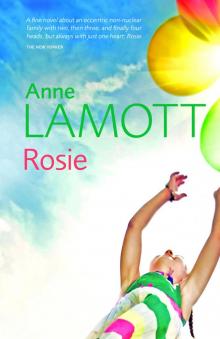 Rosie
Rosie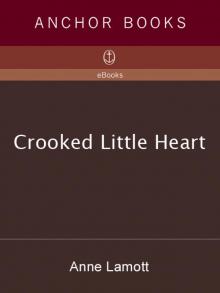 Crooked Little Heart
Crooked Little Heart Bird by Bird: Some Instructions on Writing and Life
Bird by Bird: Some Instructions on Writing and Life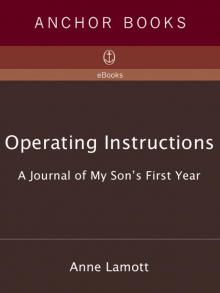 Operating Instructions: A Journal of My Son's First Year
Operating Instructions: A Journal of My Son's First Year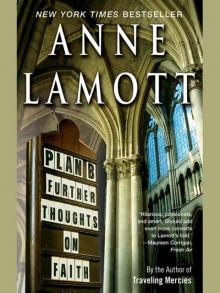 Plan B: Further Thoughts on Faith
Plan B: Further Thoughts on Faith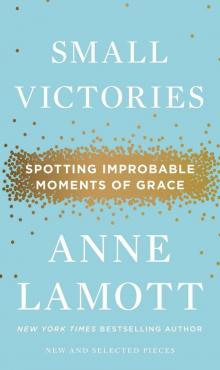 Small Victories: Spotting Improbable Moments of Grace
Small Victories: Spotting Improbable Moments of Grace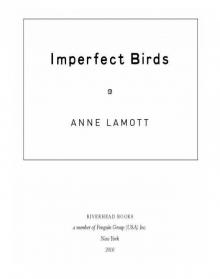 Imperfect Birds
Imperfect Birds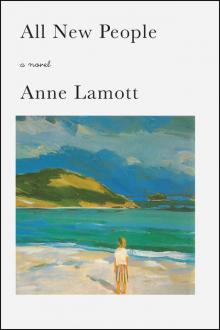 All New People
All New People Grace (Eventually)
Grace (Eventually)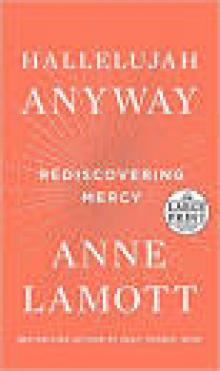 Hallelujah Anyway
Hallelujah Anyway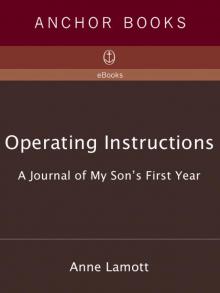 Operating Instructions
Operating Instructions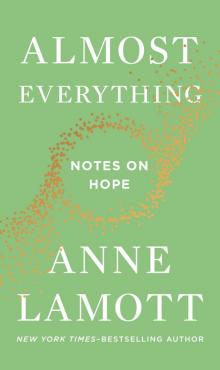 Almost Everything
Almost Everything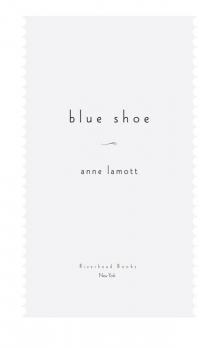 Blue Shoe
Blue Shoe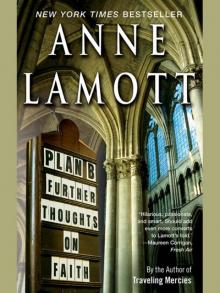 Plan B
Plan B Bird by Bird
Bird by Bird